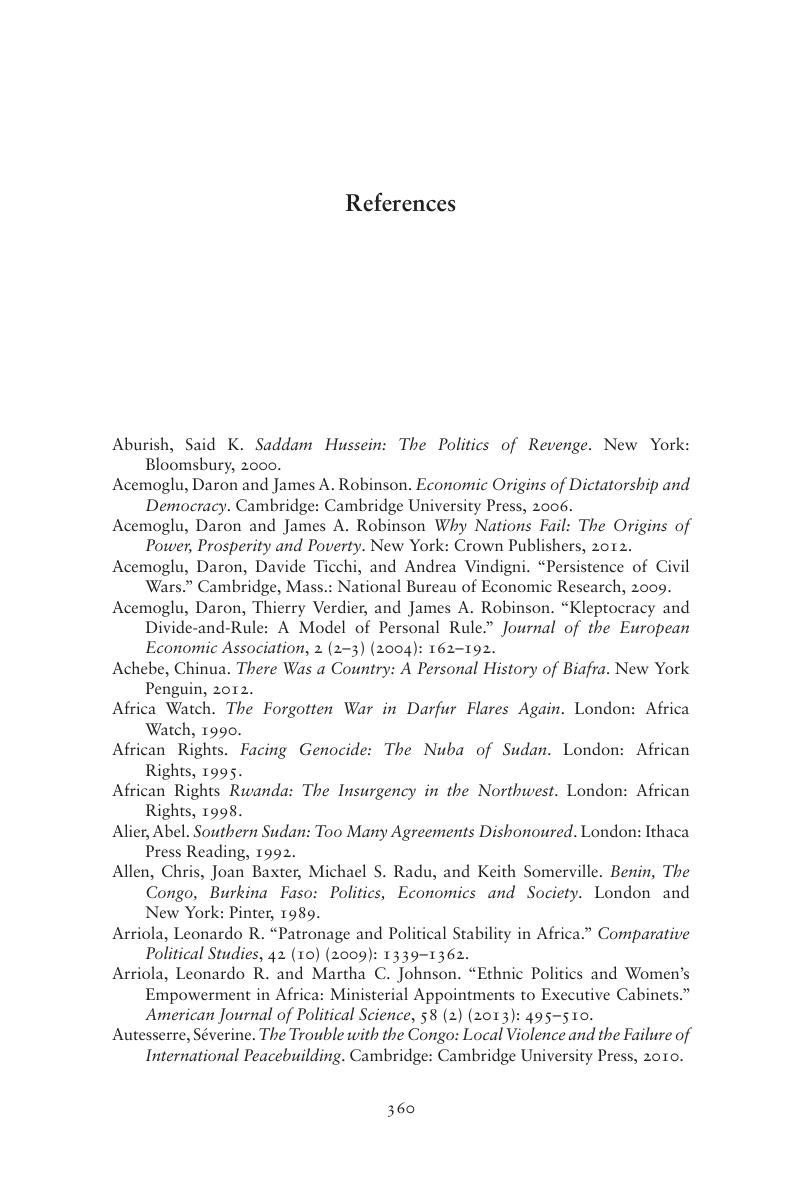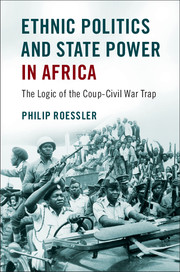Book contents
- Ethnic Politics and State Power in AfricaThe Logic of the Coup–Civil War Trap
- Ethnic Politics and State Power in Africa
- Copyright page
- Dedication
- Contents
- Figures
- Tables
- Maps
- Preface and Acknowledgments
- Abbreviations
- 1 Introduction
- Part I Puzzle and Theory
- Part II Theory-Building Case Study
- Part III Testing the Argument
- Part IV Extensions
- Book part
- References
- Index
- References
References
Published online by Cambridge University Press: 20 January 2017
- Ethnic Politics and State Power in AfricaThe Logic of the Coup–Civil War Trap
- Ethnic Politics and State Power in Africa
- Copyright page
- Dedication
- Contents
- Figures
- Tables
- Maps
- Preface and Acknowledgments
- Abbreviations
- 1 Introduction
- Part I Puzzle and Theory
- Part II Theory-Building Case Study
- Part III Testing the Argument
- Part IV Extensions
- Book part
- References
- Index
- References
Summary

- Type
- Chapter
- Information
- Ethnic Politics and State Power in AfricaThe Logic of the Coup-Civil War Trap, pp. 360 - 378Publisher: Cambridge University PressPrint publication year: 2016



